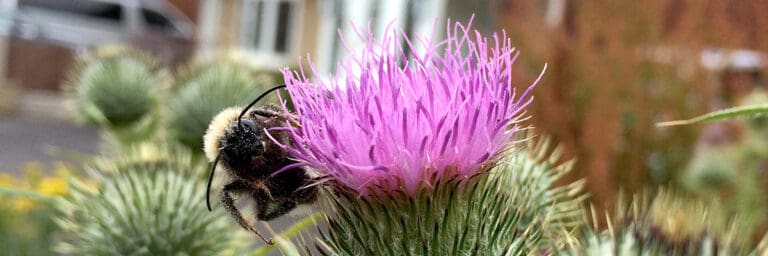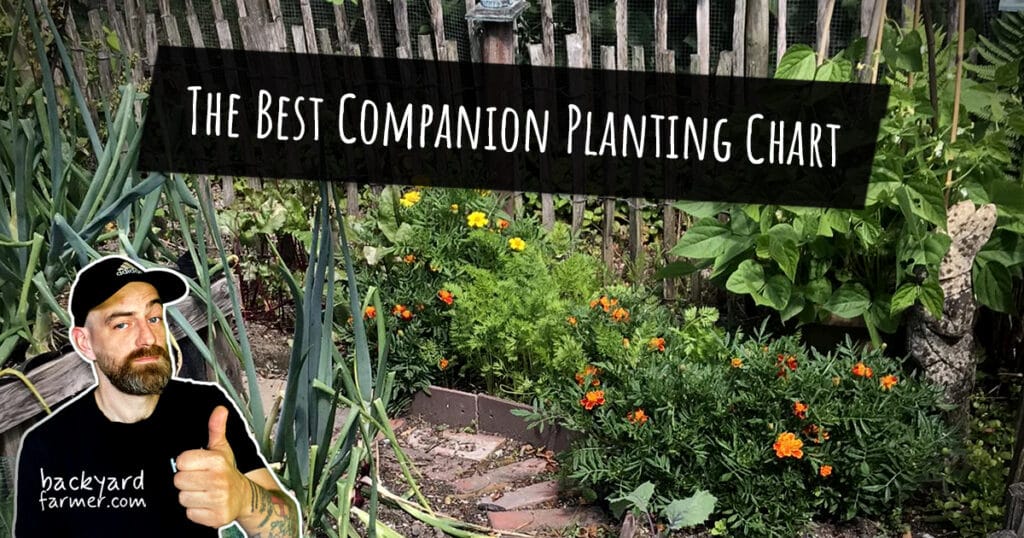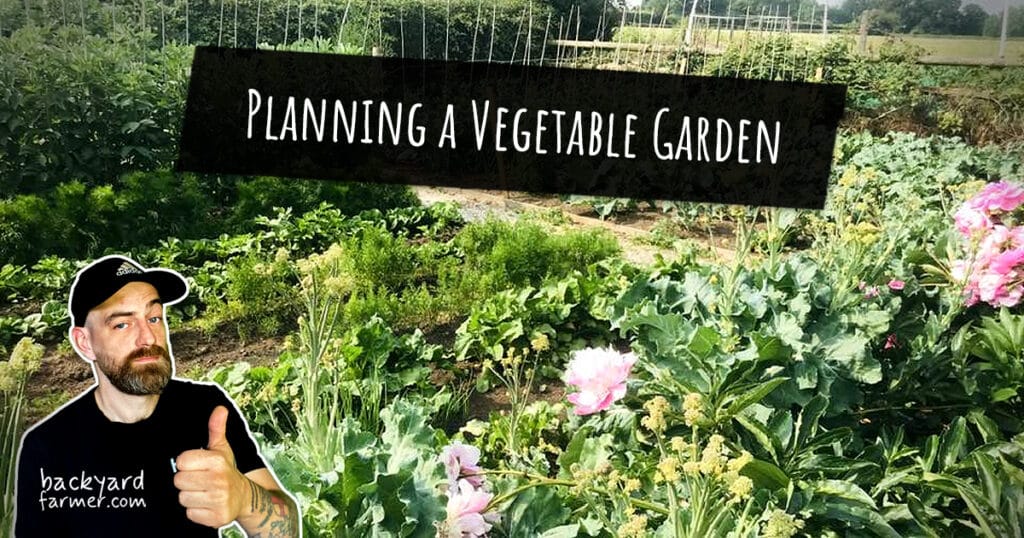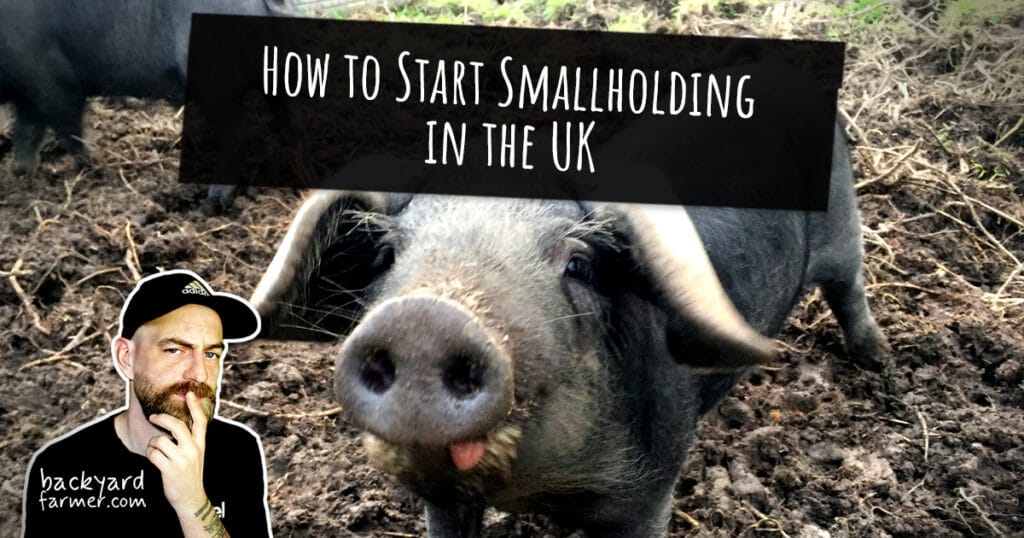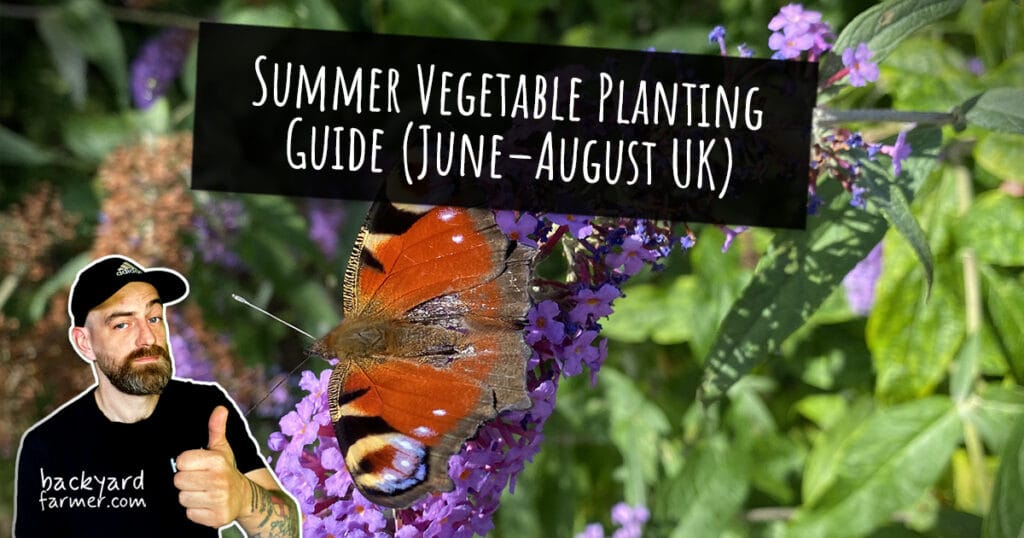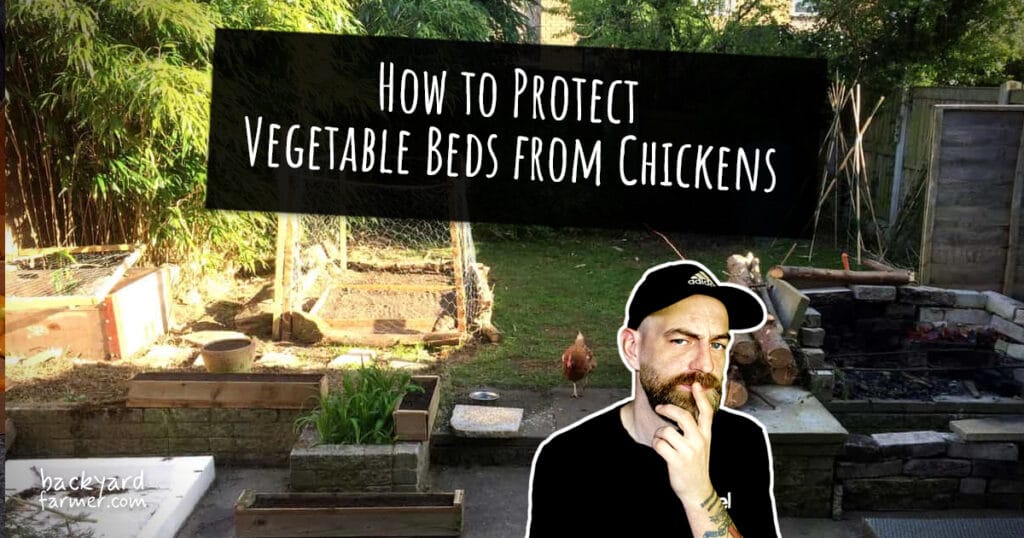Bees are important to protect because:
- Bees pollinate large amounts of crops that either feed us, or our farm animals
- They have been in steady decline for a long time and some are endangered or extinct!
- The cost to the economy to do a bees job would be too much to maintain
How to help bees out
- Build a bee hotel/house
- Plant a bee garden [wild garden]
- Keep water available in your edible garden
The main 3 main problems affecting bee populations
- Pollution
- Loss of habitat
- Climate change

Thanks for reading and we hope you learn something you can use from this article. If you want to give back to us here at backyard-farmer.com, just click on an advert 🙂 Thanks!
More about bees
Bees are vital to the ecosystem of our planet. The current estimations state that bees are the foundation for more than 1/3 of the food we eat! They have a part to play in nearly all forms of food from dairy to fruit, pollination is not only important to the human food chain, but also the food chain of every living thing on the planet!
Although they are not the only pollinators, bees are still one of nature’s main assets when it comes to keeping the world’s ecosystems flourishing.
What bees are important?
Whilst all bees are effective pollinators, there are a few species that do the most work. Out of the whopping 20,000 species of Bee only a handful are solely dedicated to pollinating the planet’s fruits, vegetables and flowers. The most important of these are the Bumble & Honey bees.
Out of the 20,000 bee species worldwide the majority are solitary species. This means they do not live in a ‘hive’ like honey or bumble bee’s but rather spend their life as individuals. Whilst they are great pollinators, solitary bees could not fill the void if bumble bees or honey bees were to disappear from the earth.
Here in the UK we have around 270 species of bee, around 250 of these are solitary species and only 9 being Honey bees.

How bees can help your foodscaping project
If you want more fruit, vegetables and seeds from your edible garden then you want to attract bees! Pollination of plants is vital to producing your vegetables and fruits. When a flower is pollinated, it is able to complete its process into a vegetable or fruit alike. These then go on to produce the seeds for its next generation.
Plant a wild corner in your edible garden
If you’re foodscaping your garden, be sure to include an area dedicated to going ‘wild’. By doing so you will allow the natural flora and fauna of your local area to flourish, this in turn supports local insects and bees!
Leaving plants like dandelions to grow can help feed bees in times that other flowers are not blooming. Not only do dandelions help bees, you can also use them at home! You can use their leaves in salads, the root as a vegetable and also a coffee substitute.
Go wild for the bees 🙂
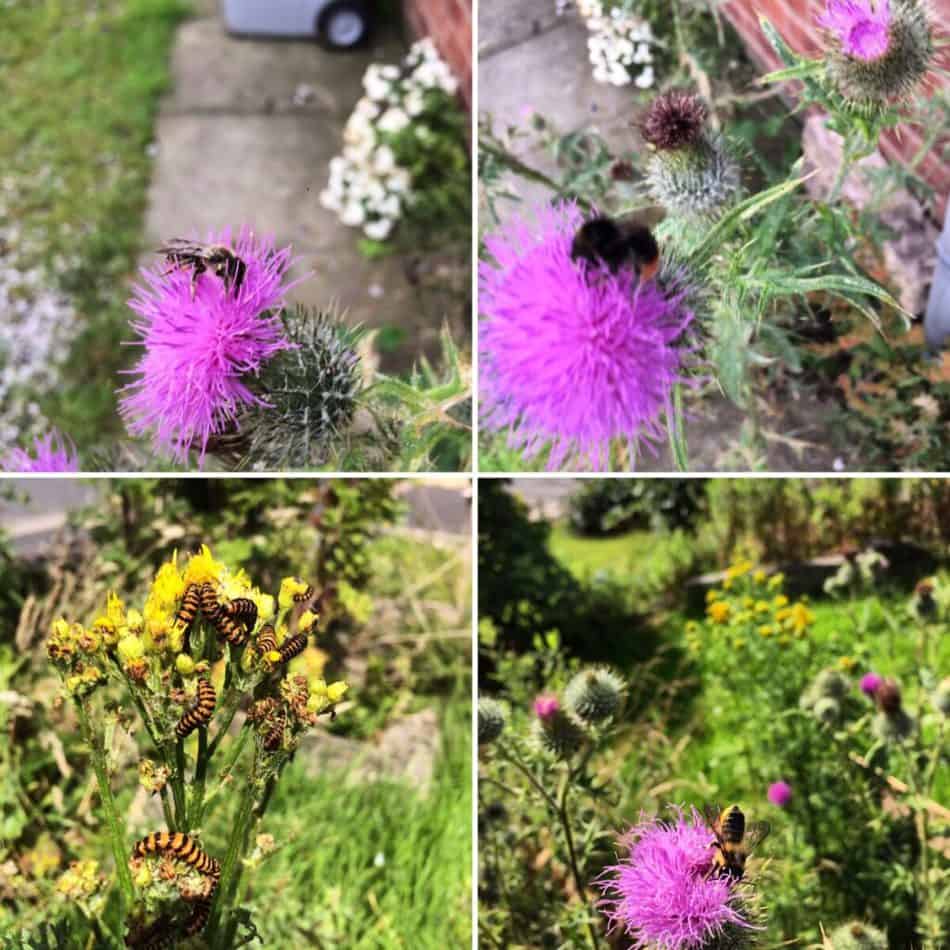
What bees are the best pollinators?
Bumble bee’s are considered the best pollinators overall. This is due to their size, fluffiness and the amount they vibrate during flight. The bumble bee can attract and carry more pollen. Due to the amount of vibration of the wings they also shed more of their cargo onto the flowers they are feeding on.
There are some instances where another species of bee may be more beneficial. Like in the US for instance where almost 80% of the annual almond and blueberry crop is dependent on the pollination by Honey Bees.
Why are bees so important to humans?
The very foundation of our food supply relies on bees. Pollinating allows plants to produce their fruits and seeds. Without pollinating
“The bee’s pollinating services are worth £690m a year to the UK economy”
Why are bees dying?
There are ongoing studies as to what is the direct cause of the bees decline. The leading causes range from pesticides to the destruction of their habitat, one thing is apparent though, it is linked to human behaviour.
The story is not all doom and gloom for our bees though, as awareness of how important bees are grows so does the public response. There have been studies to prove certain pesticides cause damage to bees and they have been removed from production in large parts of the globe.
However the battle is not over for the fuzz balls and the more we do to help them the better.
Are bees endangered?
Over the past decade or so the bee population has been in a steady decline. Whilst not all bees are endangered many species that are important to our survival are. These species are few in number and are also at the forefront of the decline in bee populations world wide.
For example, out of the 270 species in Britain, only around 9 are Honey bees and 24 are Bumble bees. While all bees contribute to pollinating, it is Bumble & Honey bees that do the most work.
It is also Honey and Bumble bees that are being more directly affected by the current population crisis in the species. Since 1900, the UK has lost 13 species of bee, and a further 35 are considered under threat of extinction. Unbelievably, none of these are protected by law.

The ‘colony collapse disorder’ in bee populations
Colony collapse disorder is an abnormal condition where worker bees do not return to the hive or Queen. This results in the colony failing as the resources can not keep up with creating more workers for the hive.
There are a lot of studies and theories as to what is causing colony collapse disorder in bee populations. Despite great efforts by scientists world wide we still do not know the exact cause. There is evidence to support the following as causes:
- Pesticides
- Mites
- Fungi
- Beekeeping practices (Antibiotics & Long-distance transportation)
- Malnutrition
- Poor quality queens
- Starvation
- Other pathogens
- Other immunodeficiencies
If you find a bee on the floor looking tired there is a chance it is disoriented and suffering from some, if not all of the effects of colony collapse disorder. Always help a bee in this situation if you can!
Read on for ways on how to help bees in this situation.
How to help bees out at home
#1 rule for helping bees is NO PESTICIDES! These have been shown to be having a negative effect on bee populations and should be avoided. There are many less damaging alternatives to using chemicals in your edible garden.
If you’re looking for ways to keep crop munching pests from your vegetables then check out our guides page! We have loads of guides and ‘how to’s’ on keeping your garden pest free, naturally.
Some ways to help our fuzzy friends out is to plant some flowers that they like to eat.
Plants that are good for bees
If you want to help bees there are some plants you can grow & encourage to help support them. Some plants that support bees are:
Flowers that are good for bees
- Cosmos
- Sunflower
- Candytuft
- Lungwort
- Mondara
- Sedum
- Winter aconite
- Crocus
- Phalacia
- Perennial wallflower
- Snowdrop
Wild flowers that are good for bees
- Dandelions
- Thistles
- Cowslip
- Viper’s Bugloss
- Field speedwell
- Yarrow
- Wood forget me not
- Comfrey
- Lesser celandine
- White dead nettle
- Ivy
Herbs that will encourage bees in your foodscaped garden
- Rosemary
- Sage
- Chives
- Marjoram
- Anise
- Bee Balm
- Hyssop
- Valerian
- Oregano
- Catnip
Fruiting plants and Trees that are good for bees
- Wild Cherry
- Apple
- Crab apple
- Raspberry
- Blackberries
- Strawberries
- Peaches
Trees & shrubs that are good for bees
- Pussy Willow
- Mahonia
- Hawthorn
- Abelia – aka the Bee bush
- Honeysuckle
Make water available for bees
One thing that is happening to bees right now is dehydration. This occurs when a bee gets lost and has to use more energy than usual to try and find its way home. Pesticides are known to affect the bees navigation meaning they are getting lost, then dehydrated and eventually dying. Unless there is some divine (or human) intervention – you.
Why is there a bee on the floor?
This poor little creature is lost and tired! If you notice a bee on the floor that is still alive then the chances are it’s lost, tired and dehydrated! This is a bee emergency and if you can, you should help it out.
If you can find the flower of a bee friendly plant then offer them that. You can also use a wet sponge to help hydrate them, use sugar water if you can to help give them that little extra to get home safely.
Why should I help a bee?
By doing this you are helping out the key worker of our food supply, without those guys we would struggle to grow food to support our ever growing population. So by helping bees, you help us too.
References
https://friendsoftheearth.uk/bees/beefriendly-plants-every-season
https://www.swallowtailgardenseeds.com/tips_lists/bee-friendly-plants.html

